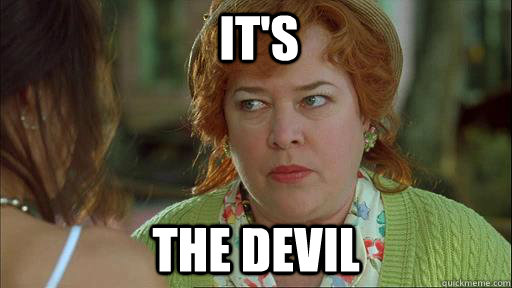(image borrowed from Amazon)
When someone is fired or dismissed from anything, be it a job or a relationship we say he "got the sack." This expression came long before the industrial era when workers carried their tools back and forth in a sack. When the job was done, or the worker was discharged, the boss would simply hand the worker his tool sack, thus literally being given "the sack."
That's an interesting history of the phrase. So literal. Lol.
(image borrowed from Sail Boston)
When dreaming of better times, one would say "when my ship comes in." This expression comes from the 19th century in Bristol, England. The sailors who worked at sea were allowed to extend credit to their wives and family back home right up until the ship came back to port. When shopping for goods, the wife would tell the shopkeeper they'd paid the tab "when my ship comes home" for they would refer to the ship their husband worked on as their own.
Interesting, yet I feel like I have't heard this expression before. Lol.
(image borrowed from Know Your Meme)
We often say a corrupt person has "gone to the Devil." This expression came from the Victorian times when it referred to going to a bar near the London civil courts. The Devil was a popular pub for lawyers who spent more time there then working in the office. If a client thought his money was going towards his lawyer's drinking tab he'd go to the office for an explanation where he was told that his lawyer had "gone to the Devil."
I wonder if that bar is still around...might have to go on my bucket list if I ever make it to London one day! Though I wouldn't drink! Lol. Just want to pop in to say I went to the Devil! HAHAHA!!
(image borrowed from Amazon)
The expression "I'll be there with bells on" refers to the frontier days when peddlers traveling between settlements would put the bells on their horse to single their arrival. The peddler's arrival usually meant news, letters, and other goods from the outside world.
(image borrowed from Culture and Capitalism)
In the twentieth century, "Pin money" was an English phrase used to call extra cash that wives would set aside to run the household. During this time, pins were rare enough that they were only sold on January 1 and 2 of the year. Pins soon became more commonplace and less expensive over time, yet the British courts still enforce prenuptial agreements demanded by the wife as the "pin money charge."
That's interesting. Never heard of that before! Lol.





%2C445%2C291%2C400%2C400%2Carial%2C12%2C4%2C0%2C0%2C5_SCLZZZZZZZ_.jpg)


These are such interesting tidbits about our language! Thanks so much for sharing Jessica!
ReplyDeleteJamie @ Books and Ladders
Lol I want to visit the bar if it's still there. Like you, not to drink but just to check it out because that's too funny.
ReplyDelete